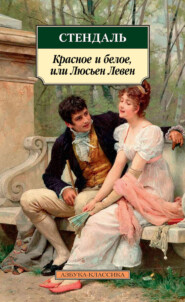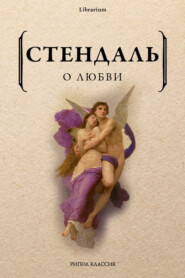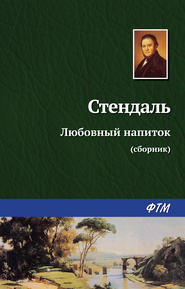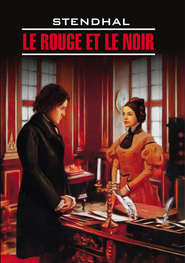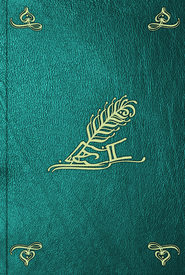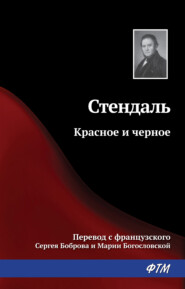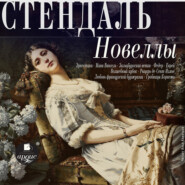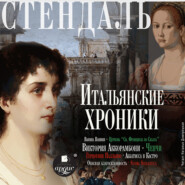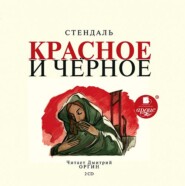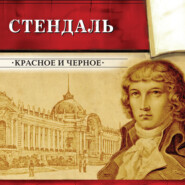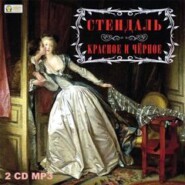По всем вопросам обращайтесь на: info@litportal.ru
(©) 2003-2024.
✖
The Roman Tales
Настройки чтения
Размер шрифта
Высота строк
Поля
Elena de’ Campireali was born in 1542 in the lovely town of Albano, very near the brigands’ stamping ground. Her father was the area’s richest man, and as such he had married Vittoria Carafa, who owned large estates in the Kingdom of Naples. Vittoria was a model of prudence and good sense. In spite of her intelligence, however, she could not stem the downfall of her family. Unusually, the calamities which are the sad subject of this tale cannot be blamed on any of its characters. Elena’s great beauty and tender heart, which left her vulnerable, excuse Giulio Branciforte, her lover. Equally, because of his complete lack of common sense, the Bishop of Castro, Monsignor Cittadini is to a certain extent exonerated. He owed his swift advance in ecclesiastical honours to his honest conduct and above all to the noblest bearing and most handsome face that anyone could hope to encounter. It has been said that to see him was to love him.
A holy monk of the Monastery of Monte Cavo, who was frequently found in his cell levitating several feet off the ground when only divine grace could have kept him in this extraordinary position, had told Signor de’ Campireali that his family would die with him and that he would have but two children, both of whom would meet violent deaths. It was owing to this prophecy that Signor de’ Campireali could not marry in his own region but went to seek his fortune in Naples, where he had the luck to find great wealth and a wife capable by her own wits of changing his ill-starred destiny, if such a thing were possible. Signor de’ Campireali was an honest man and he made many charitable donations, but, lacking in cleverness, he withdrew from Rome and ended by spending almost the whole year in his palazzo in Albano. He devoted himself to farming his lands, which lay on the rich plain between the town and the sea. Thanks to his wife, he gave his son Fabio, a young man proud of his birth, the best possible education. He did the same for his daughter Elena, who was a miracle of beauty, as can still be seen by her portrait in the Farnese collection.
In this picture, Elena’s face is oval-shaped, with a high forehead and dark blonde hair. She has a glint in her large, deeply expressive eyes, and her chestnut brows form perfect arcs. Her lips are fine, and her mouth looks as if it were drawn by Correggio. Seen among the portraits hanging in the Farnese, she has the air of a queen. A cheerful look and regal bearing are not often found together.
Elena spent eight whole years as a boarder in the Convent of the Visitation in the town of Castro, which no longer exists but where in those days the daughters of most Roman princes were sent. She then came home, but on leaving the convent she made it the gift of a magnificent chalice. As soon as she returned to Albano, her father, by means of a large retaining fee, had the renowned poet Cechino, then a very old man, brought from Rome. He embellished Elena’s memory with the most beautiful verses by the divine Vergil, Petrarch, Ariosto, and Dante.
Elena seems to have known Latin. The poems she learned spoke of love, the passionate love that takes sustenance from great sacrifices, lives wrapped in mystery, and always goes hand in hand with terrible tragedy.
Such was the love Giulio Branciforte inspired in Elena, then scarcely seventeen years old. A neighbour of hers, he lived in a humble house in the mountains. A quarter of a league from the town, it stood among the ruins of Alba on the edge of the hundred-and-fifty-foot precipice carpeted with greenery that circled the lake.
Giulio had little in his favour but a cheerful spirit and the carefree way in which he bore his poverty. His face was expressive without being handsome. He was known to have fought bravely under the command of Prince Colonna and among his bravi in two or three dangerous enterprises. In spite of his poverty, in spite of a lack of good looks, Giulio Branciforte – according to the young girls of Albano – already possessed the heart of the one he would have been most flattered to win. Well received everywhere, he had only had trifling love affairs until Elena returned from the convent.
Shortly afterwards, Cechino moved from Rome to the Palazzo Campireali to teach literature to the young girl. Giulio, who knew the great poet, wrote him a poem in Latin on how fortunate he was in his old age to see such beautiful eyes fixed on his and to behold a soul so pure.
The jealousy and spite of the young girls Giulio had courted before Elena’s return soon made it useless for him to try to hide his growing passion, and so this love between a young man of twenty-two and a girl of seventeen took a path that cannot be called cautious. Not three months went by before Signor de’ Campireali noticed that Giulio Branciforte passed too often beneath the windows of his palazzo.
Outspokenness and bluntness, which always follow the freedom republics allow and the free rein given to passions as yet unsuppressed by the manners of a monarchy, could be seen in Campireali’s first step. On the very day he was upset by young Branciforte’s too frequent appearances he spoke to him.
‘How dare you keep traipsing past my house and gazing up impertinently at my daughter’s window’, he said, ‘when you barely have a decent garment to cover yourself? If I were not afraid my neighbours would misconstrue it, I’d give you a couple of gold coins and send you to Rome to buy a better tunic. At least my eyes and my daughter’s would be less affronted by the sight of your rags.’
Elena’s father was exaggerating. Young Branciforte’s clothes were not rags but were made of homespun. Although clean and cared for, they were somewhat threadbare. Giulio was so deeply wounded by Campireali’s insults that he never again passed the house in daylight.
Two arches – remnants of an ancient aqueduct – served as the main walls of the house built and left to Giulio by his father. The place was only five or six hundred yards from Albano. To descend from here to the new town, Giulio had to pass the Palazzo Campireali. Elena soon noted the absence of this strange man who had, so his friends claimed, given up all other ties to devote himself wholly to the happiness he seemed to find in gazing at her.
One summer evening towards midnight Elena was at her open window enjoying the air which reaches Albano from the sea three leagues away. The night was dark, the silence deep. You could have heard a leaf drop. Leaning on her windowsill, Elena was perhaps thinking of Giulio, when an object like the silent wing of a night bird brushed against her window.
She drew back in alarm. The window was on the second storey, more than fifty feet above the ground. All at once, the girl thought she saw a posy moving back and forth in the deep silence. Her heart beat wildly. The posy seemed to be tied to the end of two or three long canes attached to each other. The pliancy of the rods and the breeze made it difficult for Giulio to keep his bouquet in front of the window where he guessed Elena might be. The night was so dark that from the road nothing could be seen at such a height.
Standing at her window, Elena was deeply troubled. Would taking the posy mean giving her consent? She felt none of the emotions her situation would have aroused in a well-brought-up young girl of today. Her father and brother Fabio were in the house. Elena’s first thought was that the slightest sound would be followed by a weapon fired at Giulio. She pitied the young man for the risk he was taking. Her next thought was that although she hardly knew him he was nevertheless the person whom, after her family, she loved best in the world. After several seconds’ hesitation, she took the posy and, touching the flowers in the inky blackness, she felt a piece of paper tied to the stem of one bloom. She ran to the great staircase to read the note by the glimmer of the lamp glowing before a portrait of the Madonna.
‘Rash boy,’ she said, when the first lines made her blush with pleasure. ‘If anyone sees me I’m lost, and my family will persecute this poor young man for ever.’
She returned to her room and lit a lamp. It was a thrilling moment for Giulio, who, ashamed of what he was doing and as if to hide even in the dark, was clinging to the huge trunk of one of the curiously shaped green oaks which still grow in front of the Palazzo Campireali.
In the letter, Giulio described straightforwardly the mortifying reprimand he’d had from Elena’s father.
I am poor, it’s true, and it would be hard for you to understand just how poor. I have only my house, which you may have noticed under the ruined aqueduct of Alba. There’s a garden round it, which I cultivate myself and whose plants nourish me. I also have a vineyard that brings me thirty scudi a year. I really don’t know why I love you. Obviously I can’t invite you to share my poverty. But at the same time, if you don’t care for me at all my life is worth nothing. It’s useless to say that I would give it a thousand times for you. Before you came back from the convent, my life was not miserable. On the contrary, it was filled with the most exciting plans. Now this glimpse of happiness has made me wretched. No one else would have dared utter the insults your father lashed me with. My dagger would have given me instant justice. My courage and my dagger made me the equal of anyone in the world. I lacked nothing. Now everything has changed. I know fear. Perhaps I go on too long. Perhaps you despise me. If, however, you have some pity for me in spite of the humble clothes I wear, every evening when midnight sounds at the Capuchin monastery on the top of the hill you will see that I am hiding under the great oak opposite the balcony I watch endlessly because I believe it to be your bedroom window. If you do not despise me as your father does, throw me one of the flowers from the posy, but take care it does not catch on the corner of the balcony below.
Elena read the letter several times, her eyes slowly filling with tears. She was moved by the beautiful bouquet, which was tied with a strong silken thread. She tried to pluck out a flower but did not succeed. Suddenly she was filled with remorse. To Roman girls, plucking a flower from a posy given as a love token or destroying it in any way risks killing off that love. Fearing Giulio’s impatience, she dashed to the window. Once there, she thought she could be seen too easily. The lamp filled the room with light. Elena did not know what signal she could allow herself. There seemed nothing that would not say too much.
Timid, she hurried back into her room. But time passed. Then a thought filled her with anxiety. Giulio would think that she too despised him for his poverty. A small piece of precious marble lay on a table. Knotting it in her handkerchief, she threw it to the foot of the oak opposite her window. Then she signed to him to go away. She heard Giulio obey. As he left he did not trouble to conceal the sound of his footsteps. When he reached the top of the ring of rocks that separates the lake from Albano, she heard him break into a love song. Less timid now, she waved to him, then went back to reread her letter.
The next day and the following days there were similar letters and assignations. But as nothing goes unnoticed in an Italian village, and Elena’s family was by far the richest in the region, Signor de’ Campireali was informed that every evening after midnight a light could be seen in his daughter’s room. And, stranger still, the window was open and Elena stood there as if she had no fear of irksome busybodies. Signor de’ Campireali got out his arquebus and his son’s. That evening, as a quarter to midnight struck, he called Fabio, and, making as little noise as possible, the two slipped out onto a large stone balcony immediately below Elena’s window. The thick columns of the stone balustrade protected them below the waist from gunshots that might be fired on them from without. Midnight struck; father and son could clearly hear rustling sounds from the trees that bordered the road opposite the palazzo, but to their surprise no light appeared in Elena’s window.
Falling in love had changed this girl from a simple carefree child. She knew that the slightest reckless action could spell death to her lover. Should someone as important as her father kill a poor man like Giulio Branciforte, he would have to disappear to Naples for three months. Meanwhile his Roman friends would make arrangements, and all would be settled by the gift of a silver lamp worth several hundred scudi to the altar of whichever Madonna was then in fashion.
That morning, at breakfast, Elena noted from her father’s expression that he was extremely angry, and, by the way he watched her when he thought she was not looking, she realized she was the source of his anger. Quickly she sprinkled a layer of dust on the stocks of the five magnificent arquebuses her father kept hanging by his bed. She also scattered a thin coat of dust over his daggers and swords. All day in a state of excitement she ran up and down the house. She kept going to the windows, ready to wave Giulio away if she caught sight of him. But she needn’t have worried. After her father’s humiliating reprimand Giulio never came to Albano by day except, out of duty, to Sunday Mass. Elena’s mother, who adored her and refused her nothing, went out with her three times that day. But it was no use. Elena saw no sign of Giulio. She was desperate.
What can she have felt when that evening, going to inspect her father’s weapons, she saw that two arquebuses had been loaded and that most of the daggers and swords had been handled. She was only distracted from her deathly anguish by the extreme care she took to seem to suspect nothing. When she retired to bed at ten o’clock that night she locked the door of her room, which opened into her mother’s antechamber. She stayed close to the window, lying on the floor in such a way that she couldn’t be seen from outside. We can well imagine the anxiety with which she heard each hour strike. She no longer felt that her impetuous attachment to Giulio might in his eyes make her less worthy of love. That single day advanced the young man’s courtship further than six months of constancy and avowals of love.
‘What’s the use of lying?’ Elena asked herself. ‘Do I not love him with all my soul?’
At half-past eleven she clearly saw her father and brother stationing themselves for an ambush on the balcony below her window. Two minutes after midnight sounded at the Capuchin monastery, she also heard her lover’s footsteps halting beneath the large oak. She noticed with relief that her father and brother seemed to have heard nothing. Only love’s heedfulness could make out such a soft rustle.
‘They’re going to kill me,’ she thought, ‘but they must not find tonights’s letter. They will hunt down poor Giulio for ever.’ She made the sign of the cross and, with one hand gripping the iron railing of her window, she leaned out as far as possible. Before a quarter of a minute had passed, the posy, attached as usual to the long rod, brushed against her arm. She reached for the bouquet but in snatching the rod she accidentally knocked it against the balcony below. Instantly, two shots rang out followed by complete silence. Fabio, thinking in the dark that what had grazed the balcony might be a rope by which Giulio was climbing down from his sister’s room, had fired at her balcony. The next day, she found the mark of the ball, which had smashed against the iron railing. Signor de’ Campireali had fired into the road below, as Giulio had made a slight sound while trying to prevent the rod from falling.
Hearing noises overhead, Giulio had guessed what was to follow and had taken refuge under the overhang of the balcony.
Fabio quickly reloaded his arquebus and, against his father’s orders, ran into the garden, opened a little door which led to the street, and stealthily scrutinized the people who were strolling under the palazzo balcony. At that point, Giulio, who was not alone that evening, clung to a tree twenty paces from Fabio. Elena, leaning against the parapet of her balcony and trembling for her lover, launched into a loud conversation with her brother, asking if he had killed the thieves.
‘Don’t think you can fool me with your tricks, you slut,’ he cried out from the road, where he was prowling about. ‘Start weeping, as I’m going to kill the scoundrel who dares approach your window.’
He had hardly spoken when Elena heard her mother knocking on her bedroom door. The girl rushed to open it, saying she had no idea how the door came to be locked.
‘Don’t play the fool with me, my love,’ said her mother. ‘Your father is furious and may well kill you. Come and get into my bed with me and if you have a letter let me have it. I’ll hide it.’
‘Here’s the bunch of flowers,’ Elena told her. ‘The letter is hidden inside it.’
No sooner were mother and daughter in bed when Signor de’ Campireali burst into his wife’s room. He was on the way back from his oratory, where he had turned everything upside-down. It struck Elena that her father was as pale as a ghost and that he moved like a man who had learned his part perfectly. ‘I’m doomed,’ the girl told herself.
Approaching his wife’s bed on his way to his daughter’s room, shaking with fury but pretending to be completely calm, he said, ‘We rejoice in our children but we should weep tears of blood when those children are girls. Good God, is it possible their silliness can wipe out the honour of a man who for sixty years has not had the least taint upon him?’
With these words, he went to his daughter’s room.
‘He’s bound to find the letters,’ said Elena to her mother. ‘They are under the pedestal of the crucifix by the window.’
At once her mother leapt from the bed and ran after her husband. Crying out the worst things she could think of, she sent him into a rage. Blinded by fury, the old man tore his daughter’s room apart, but her mother was able to remove the letters without his seeing. An hour later, when Signor de’ Campireali had gone back to his own room, the house grew quiet again.
‘Here are your letters,’ Elena’s mother said. ‘I don’t want to read them. See what they nearly caused us. If I were you I’d burn them. Goodnight. Give me a kiss.’
Elena returned to her room in floods of tears. After what her mother had said, it seemed to the girl that she no longer cared for Giulio. She was about to burn the letters, but she could not stop herself rereading them first. So often and so closely did she study them that the sun was already high in the sky when at last she decided to follow her mother’s sensible advice.
The next day, a Sunday, Elena set off with her mother to the parish church. Luckily, her father did not accompany them. The first person she saw in the church was Giulio Branciforte. One look sufficed to see that he was unhurt. Her happiness knew no bounds, and the night’s events fled from her memory. She had prepared five or six little notes, jotted on scraps of dirty old paper picked up from the floor of the church. They all had the same message. ‘They know everything except his name. Let him not be seen in the road again. We will come here often.’
Elena dropped one of these scraps. A glance told Giulio, who picked it up and left. On her way home an hour later, another scrap of paper caught her attention on the steps of the palazzo. It looked exactly like the one she had used that morning. She took it without her mother seeing and read it. ‘In three days he’ll be back from Rome. At about ten o’clock on market days amidst the hubbub someone will start to sing.’
This journey to Rome seemed strange to Elena. ‘Is he afraid of my brother’s gun?’ she wondered. Love forgives all except voluntary absence, which is the worst of tortures. Instead of going by in sweet reverie, counting the reasons for loving a lover, life is beset with cruel suspicions. ‘But am I really to believe he no longer loves me?’ Elena wondered over the three long days of Branciforte’s absence. Her sorrow gave way to great joy when on the third day she saw him at midday coming along the road past her father’s palazzo. Giulio’s clothes were new, almost sumptuous. Never had his noble bearing and the brave carefree candour of his face appeared to greater advantage. Before now everyone in Albano had talked about Giulio’s poverty. It was the young men in particular who spoke of it most often, while the women, especially the girls, never stopped praising his handsome face.
Giulio spent the whole day strolling about the town. He seemed to be making up for the months of solitude his poverty had condemned him to. As befits a man in love, he was well armed beneath his new tunic. Besides his dirk and dagger, he wore a giacca, a mail waistcoat, which was uncomfortable but which cured Italian hearts of a woeful sickness to whose sharp attacks a man was ceaselessly prone in those days. This was the fear of being killed at every bend in the road by one of his enemies.
That day Giulio was hoping to catch a glimpse of Elena and, furthermore, he did not relish the idea of being alone in his isolated house. This is why.
Ranuccio, one his father’s former soldiers, who had served with him in ten campaigns in various condottieri regiments – most recently under Marco Sciarra – had followed his captain until his wounds forced him to retire. Captain Branciforte had reasons for not living in Rome. There he ran the risk of meeting the sons of men he had killed. Even in Albano he took care to steer clear of the legal authorities. Rather than buy or rent a house in town, he chose to build one in a spot where he could see anyone who approached. He found an ideal site in the ruins of Alba, where, concealed from surprise callers, he could take refuge in the forest, the domain of his old friend and leader, Prince Fabrizio Colonna.
Captain Branciforte did not much care about his son’s future. When he retired from service at only fifty, but riddled with wounds, he calculated he could live for another ten years, spending each year a tenth of what he had earned in the looting of towns and villages at which he’d had the honour to partake.
He purchased for his son a vineyard that brought in thirty scudi. This was in response to a bad joke by one of Albano’s leading citizens, who had once told him when they were arguing over the interests and the honour of the town that in fact it was the business of a rich landowner like Branciforte to give advice to the elders of Albano. The captain bought the vineyard and announced that he would buy many more when, coming across the wag in a lonely place, he shot him dead.






